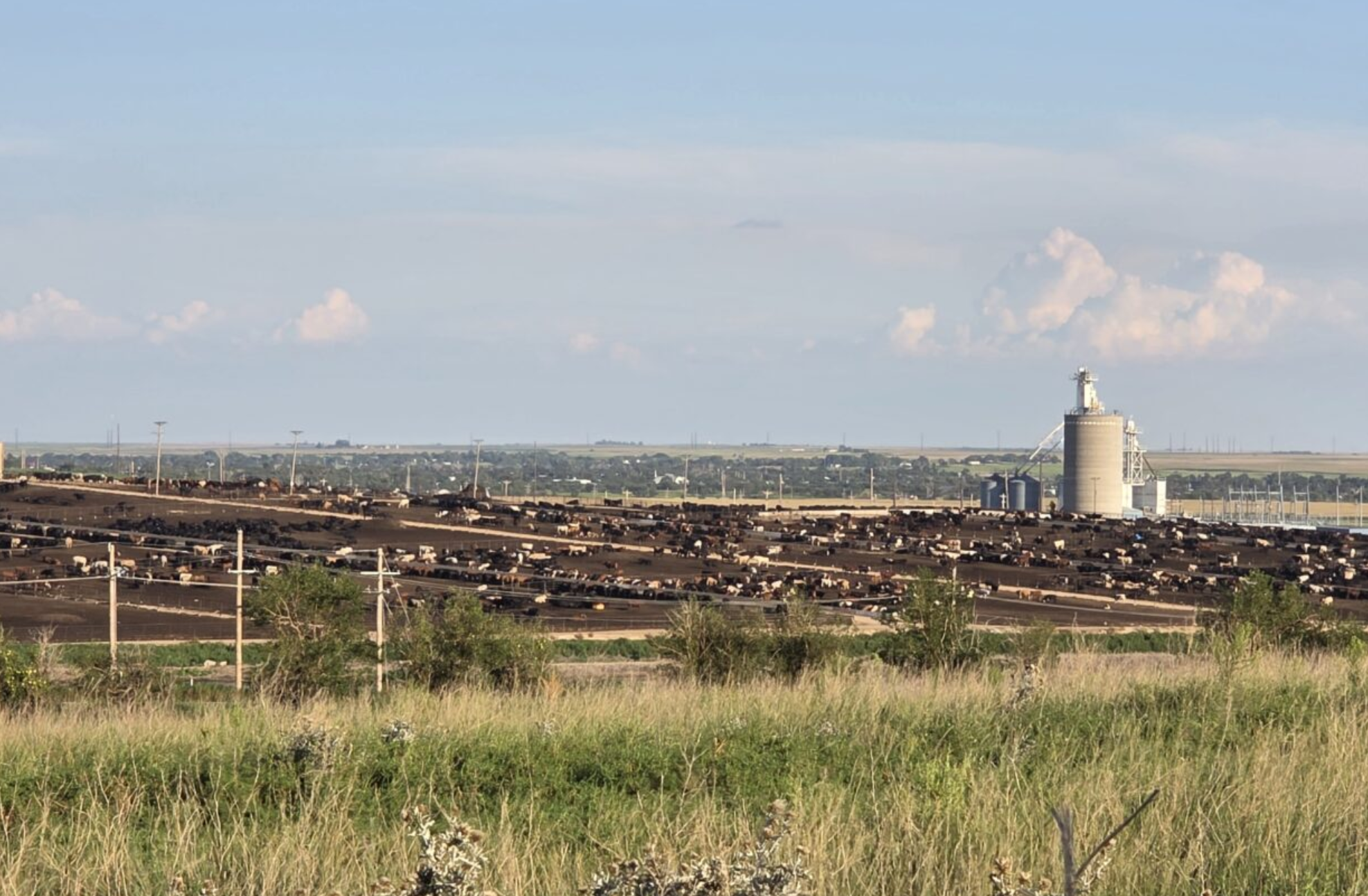
BY MORGAN CHILSON
Kansas Reflector
TOPEKA — Kansas farm leaders are pushing Congress to get back to work and solve problems facing the agriculture industry, pointing out that a closed government doesn’t mean U.S. lawmakers can’t be in session.
“I’m up here in Republic County and there’s a lot of activity going around harvest,” said Nick Levendofsky, executive director of the Kansas Farmers Union. “And then, of course, wheat drilling and all that, too, and getting ready to move cattle off of pastures. The work doesn’t stop for farmers. We don’t pause, we don’t shut down. We have to keep going.”
Levendofsky, speaking earlier this month in a virtual press conference arranged by Kansas Congresswoman Sharice Davids, echoed comments from Kansas agriculture secretary Mike Beam to get Congress back to work.
“It’s time to get back to work on and really address some things, particularly some things that really don’t cost money — it’s just public policy that we need to address,” Beam said on the same call.
Levendofsky said the farm bill was allowed to expire, and even though some agricultural issues were addressed in the One Big Beautiful Bill Act, much is left to do.
“I’ve talked with farmers in our organization, farmers in my area, and farmers all across the state, and they’re very frustrated with what’s going on right now,” he said.
As farmers are grappling with increased input expenses, tariffs and weather, Davids said she was “p***ed” about President Donald Trump’s expressed intentions to import more Argentinian beef.
“I think we need to be doing everything we can to support American ranchers and producers and farmers and not importing in stuff that we’re growing here,” she said.
Matthew Steele, CEO and executive director of the Kansas Cattlemen’s Association, listens to news every day with a strong dose of caution and “trying to read through the lines.” As an engineer with a compliance background, he’s always looking deeper, he said.
“You’ve got to always be thinking about this is the black and white, what does all the gray around it mean?” he said in a call with the Kansas Reflector.
For instance, outcry about the potential of Mexico reopening its U.S. border to import feeder cattle doesn’t have as big of an impact as people might expect, Steele said.
About 1 million head a year come in from Mexico, out of 83 million head produced in the U.S., he said.
“It’s not that big of a number,” Steele said. “They’re still anywhere from three to eight or nine months from being ready for harvest anyway. Where the impact comes is those aren’t prime animals that are coming up. It’s not like they’re bringing in certified Angus roasts and steaks. It’s lower quality we grind up and serve as hamburgers.”
Still, the market took that news and went “crazy,” he said. Live cattle contracts fell Monday, dropping about $7 on Monday, according to Marketwatch.
Steele said his organization is telling farmers to call their representatives to share stories and help them understand how the system works. Although organizations like Kansas Cattlemen’s are advocating, it means more coming from the people who are doing the work, he said.
Adam Phelon, a Kansas Soybean Association board member who farms with his family near Garnett, joined Davids’ call to share his frustration with the shutdown and what a challenge it can be throughout rural communities with a “snowball effect” that hits many areas.
Phelon said farmers need consistency and certainty to make plans, and they don’t have that right now. He also pointed to families that need support from programs like Women, Infants and Children payments and a friend in the Navy who is stationed in Germany and wasn’t able to make their house payment that was due in October.
“The difficult thing is that even when the government does get back up and running, we’re going to be so far behind,” Phelon said. “We applaud the Congress for getting the renewable fuel standards up to where they should be, but those should be implemented at the beginning of November, and because of this government shutdown, it may be pushed back into the following year.”
Although Davids said the Farm Service Agency announced last week it would resume partial operations, that wasn’t enough to help Kansas farmers.
“This is just a Band-Aid on a larger problem of a government shutdown, and our farmers, ranchers, producers are hurting,” Davids said. “They haven’t received some of their farm subsidies or loans. Conservation projects are stalled, like one that’s near Baldwin City, Kansas, they can’t move forward because no one is in the office to simply process the paperwork. Without crop or market reports, producers are being forced to make major financial decisions in the dark. These programs are truly a lifeline for rural America.”





